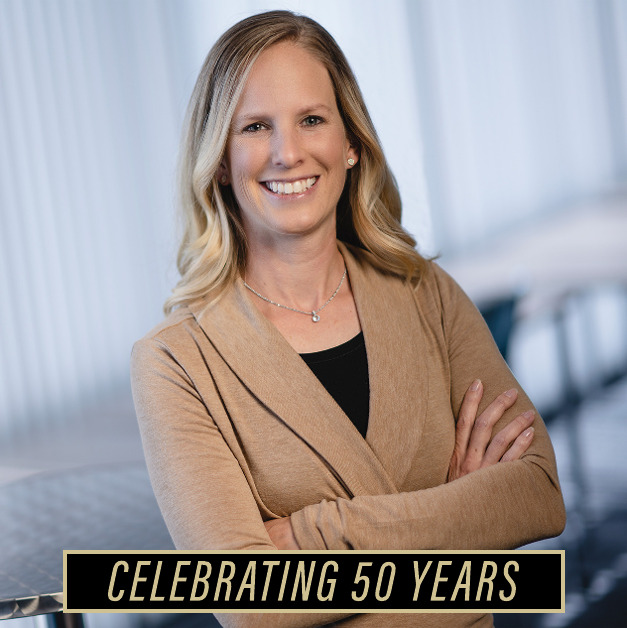Three-time BME graduate chose Purdue for its academic and athletic cultures
Beier’s interest in the biomedical engineering field stemmed from her parents’ careers. She received her bachelor’s degree in 2008, master’s degree in 2010 and doctoral degree in 2011. She completed each degree in the Weldon School of Biomedical Engineering.
“Growing up with a mom who is an audiologist and a dad who is a civil engineer, I was naturally drawn to both engineering and the medical fields,” Beier explained. “Biomedical engineering was the perfect blend of my interests, allowing me to combine my passion for problem-solving with my desire to contribute to healthcare advancements.”
As an undergraduate student, Beier played on the Purdue Women’s Tennis Team from 2004 to 2008. During her senior year, she was the captain and an All-Big Ten selection.
During her time as a graduate student, Beier’s research was focused on the development of implantable medical devices. She served as an assistant coach of the Purdue Women’s Tennis Team.
Now, Beier is the Senior Vice President of Purdue Innovates. She has worked for the Purdue Research Foundation for 11 years.
“I oversee a comprehensive team and platform for Purdue technology commercialization, intellectual property protection and licensing, enterprise creation and venture capital,” Beier said. “Purdue Innovates is comprised of three key components that support Purdue faculty/staff, students, alumni and companies that license Purdue IP: the Office of Technology Commercialization (OTC), the Incubator and Ventures.”
According to Beier, her experience in the Weldon School prepared her for her career working closely with Purdue innovators.
“Biomedical engineering equipped me with the ability to comprehend a wide range of technologies and develop the skills to assess unfamiliar areas. It also provided valuable networking opportunities, placing students in various settings to foster professional connections,” Beier explained. “Additionally, the Weldon School of Biomedical Engineering’s focus on translational research and its encouragement of entrepreneurship and commercialization inspired me to focus my career on these areas. BME focused on impacting patients’ lives and that was at the center of everything we did. Purdue Innovates has a similar mission, to improve the world through Purdue technologies and graduates.”

